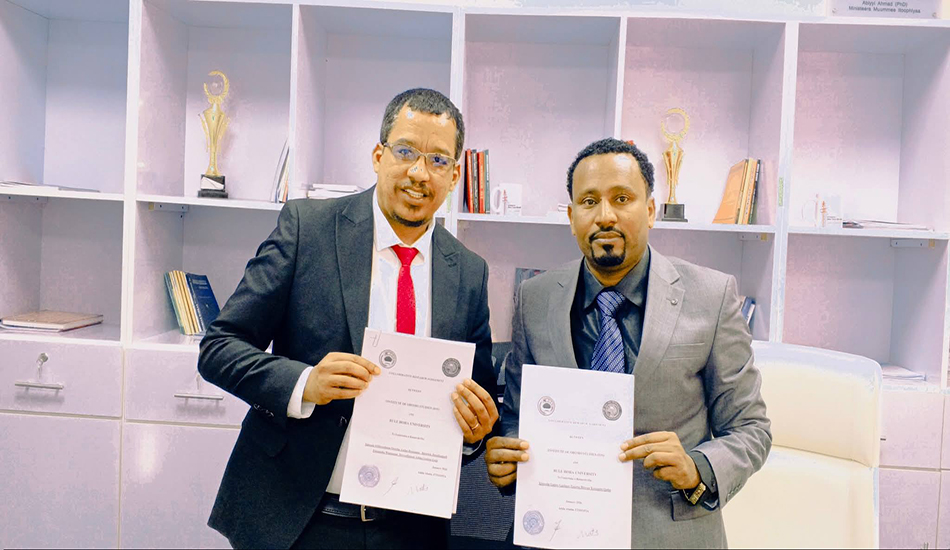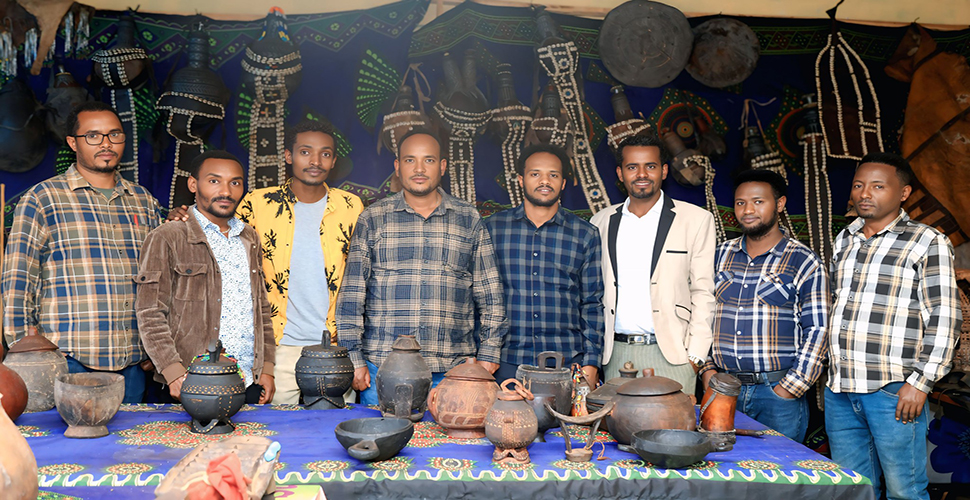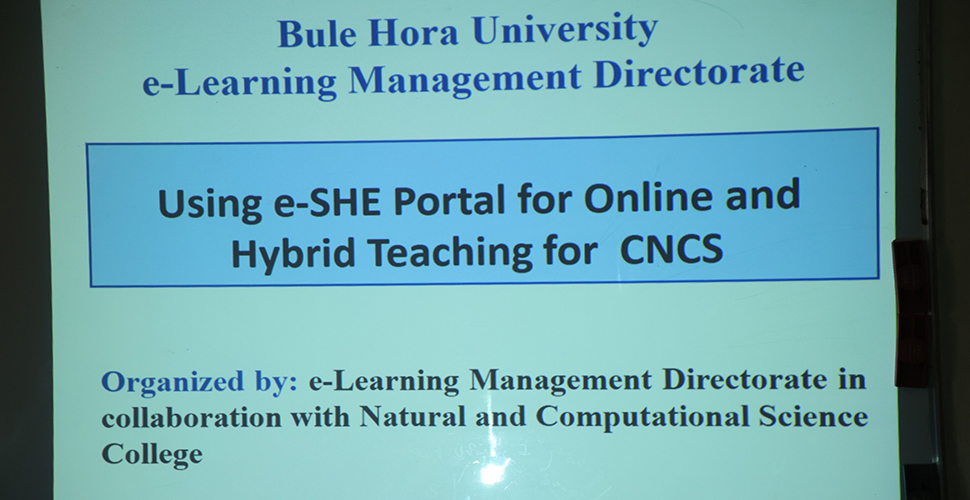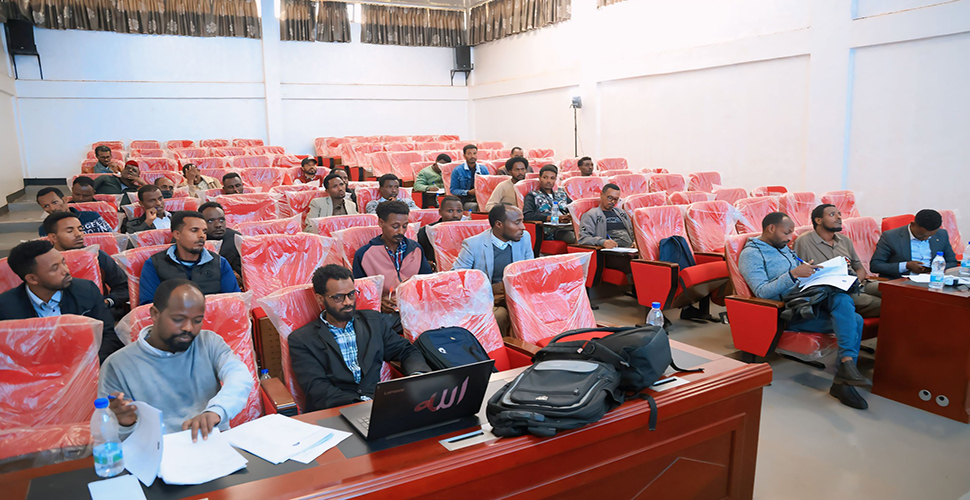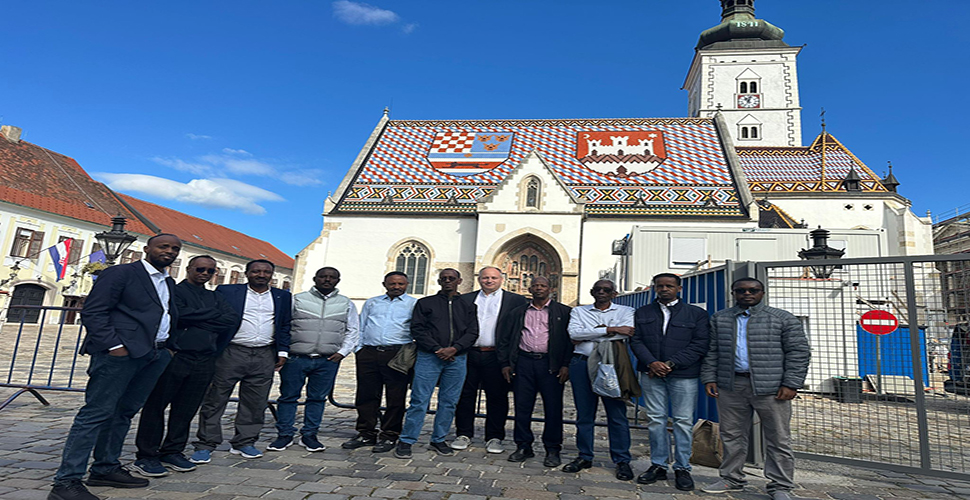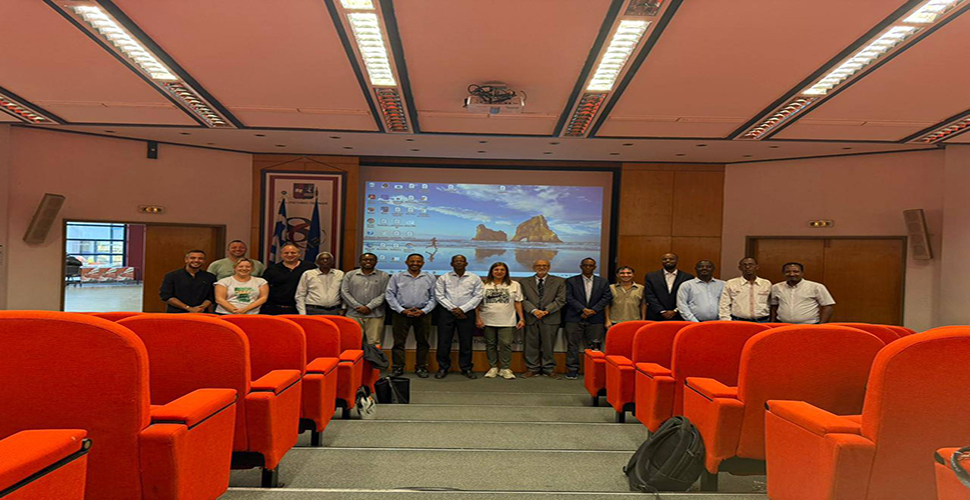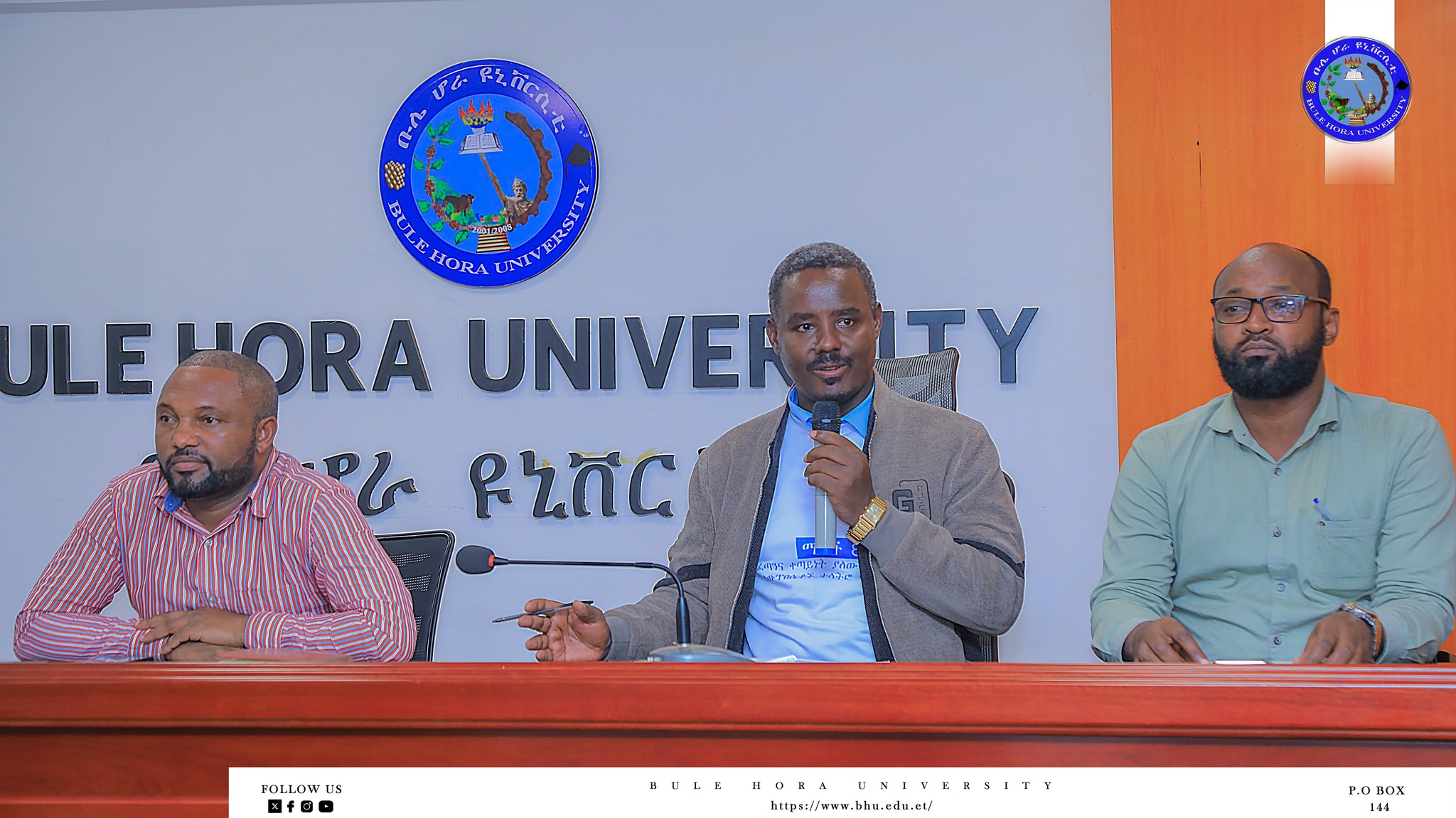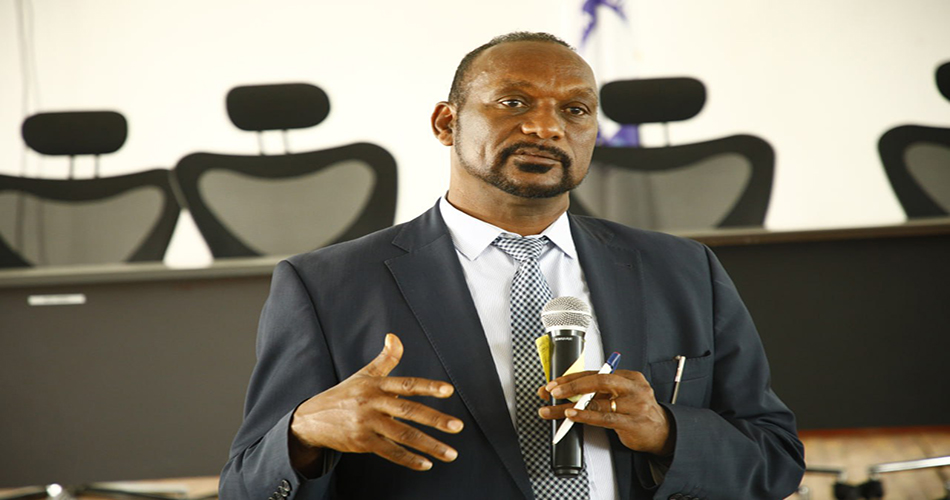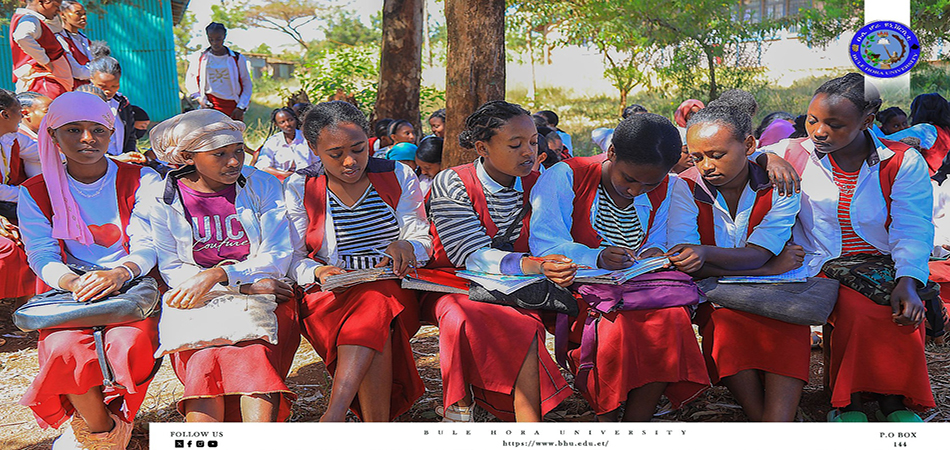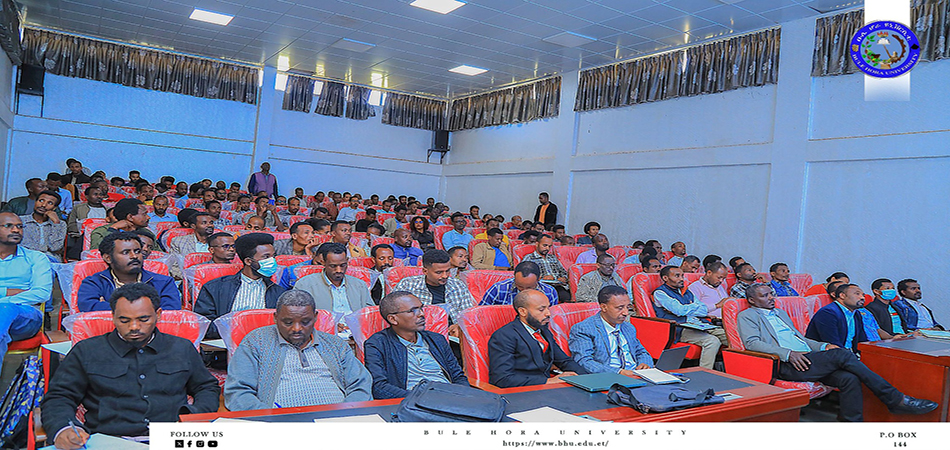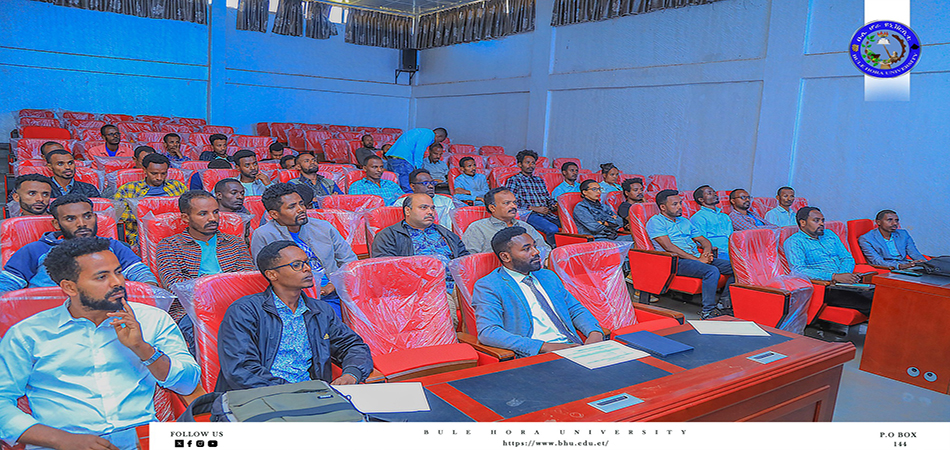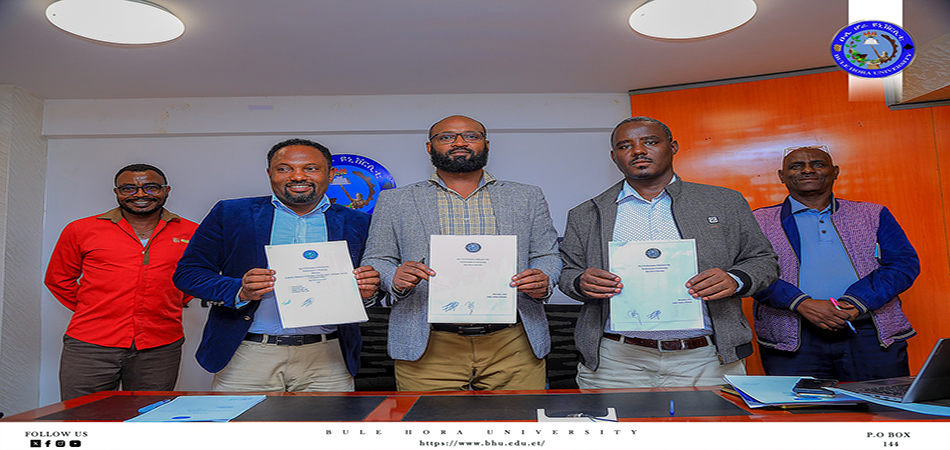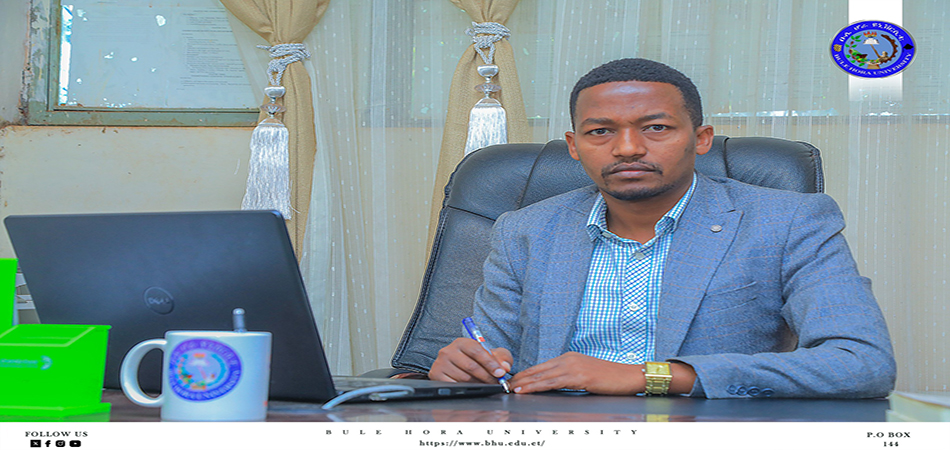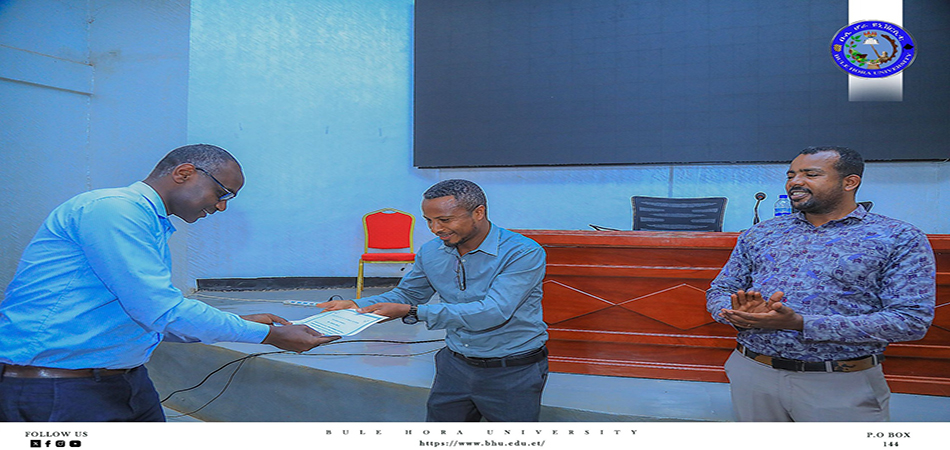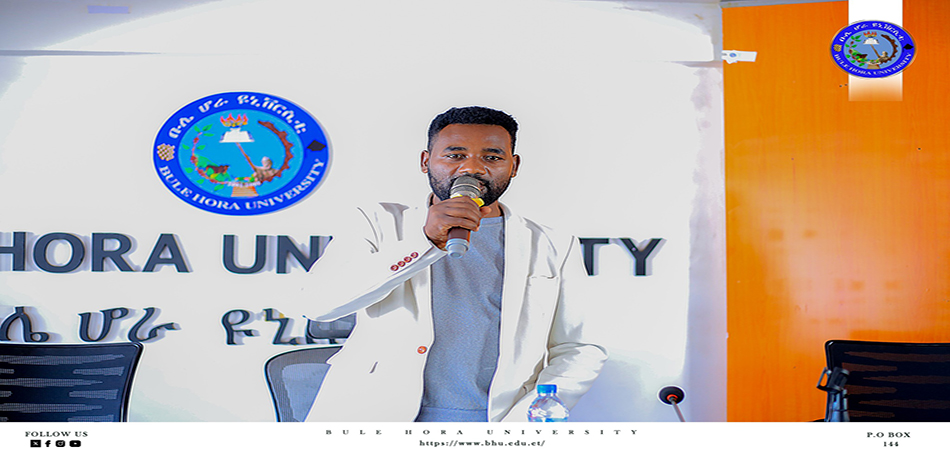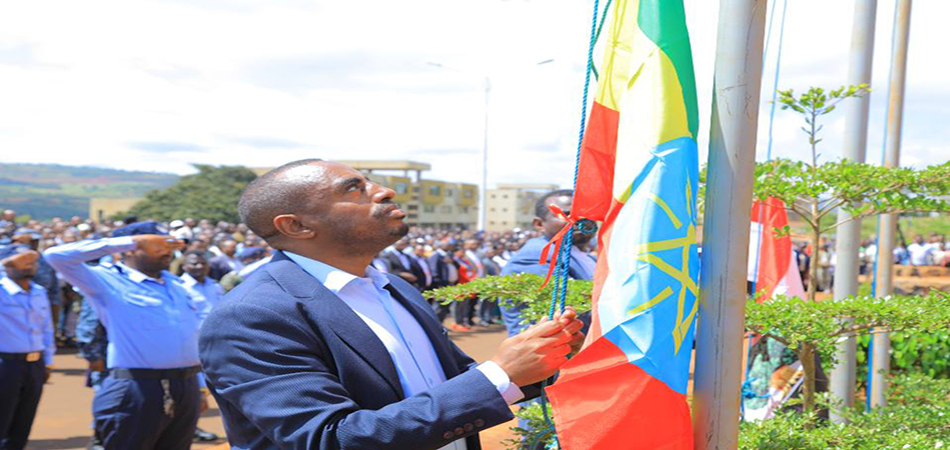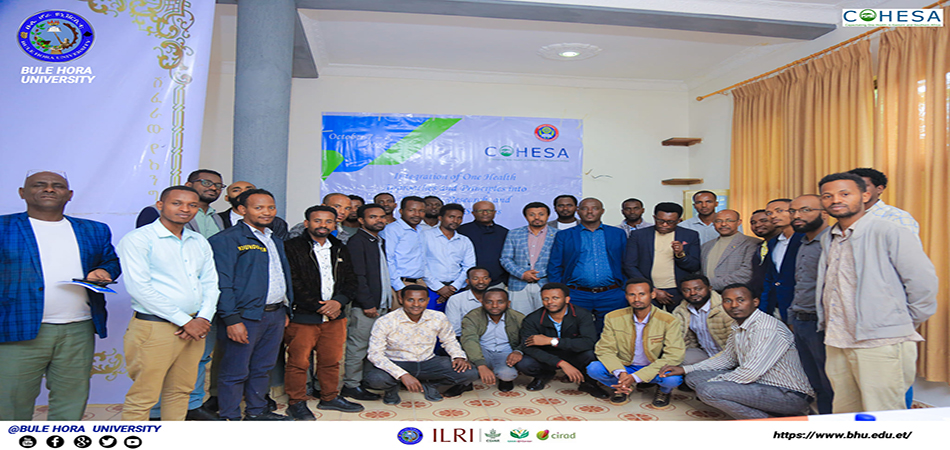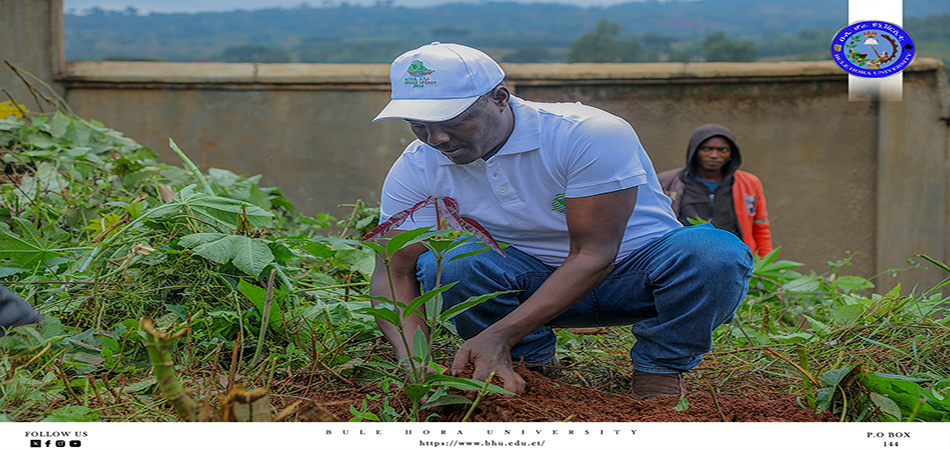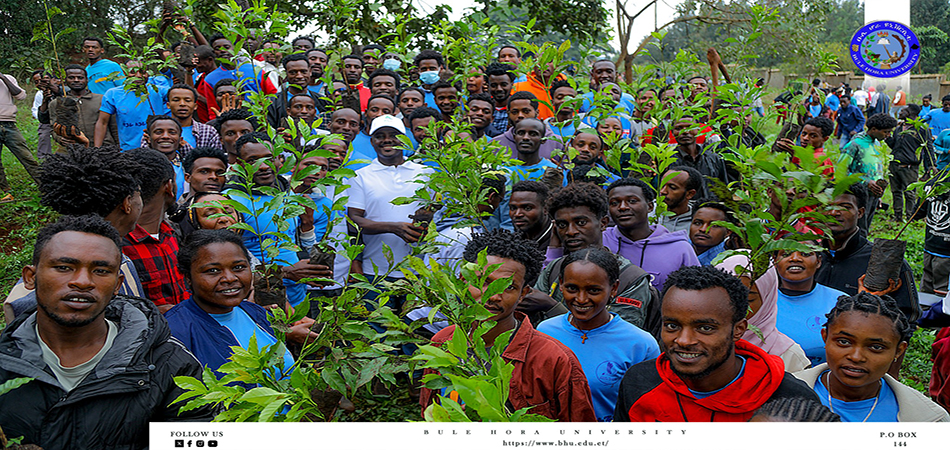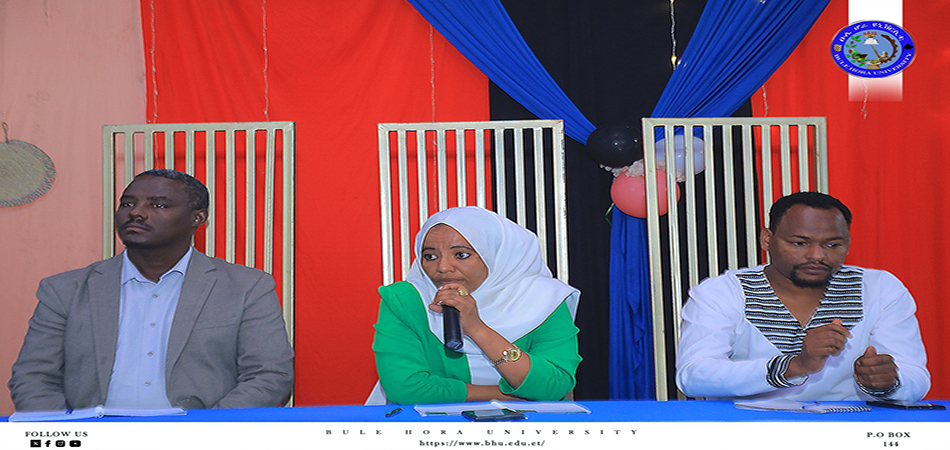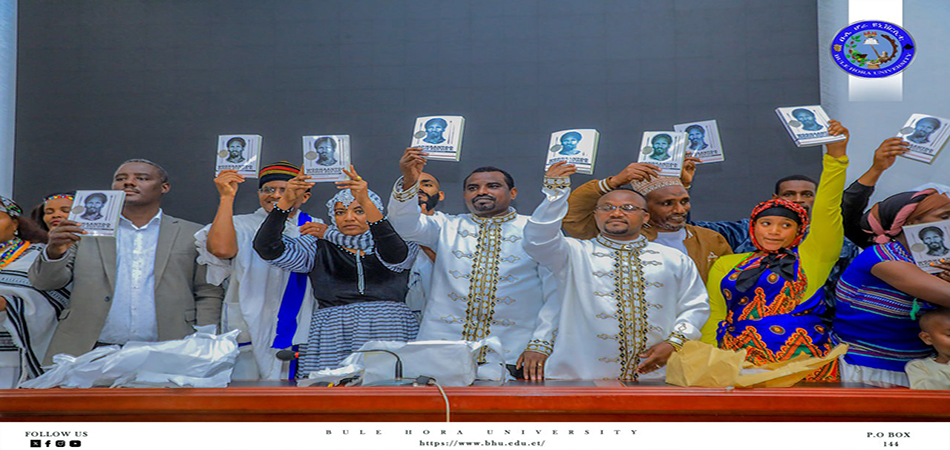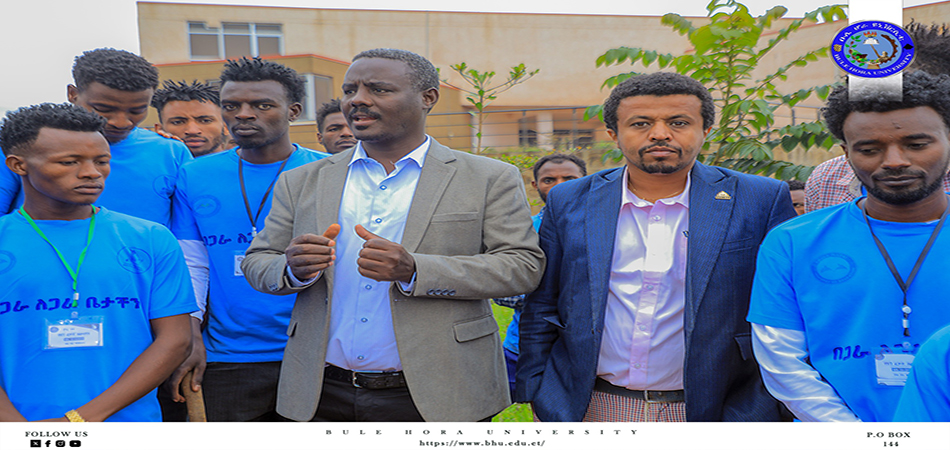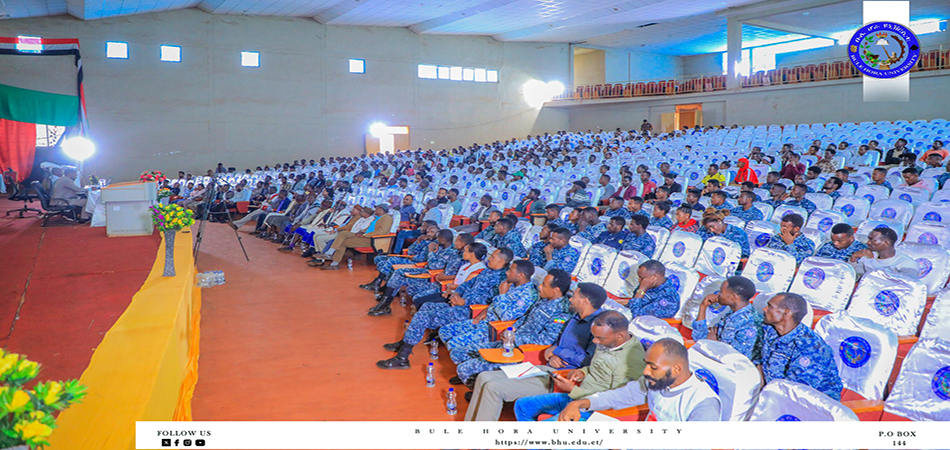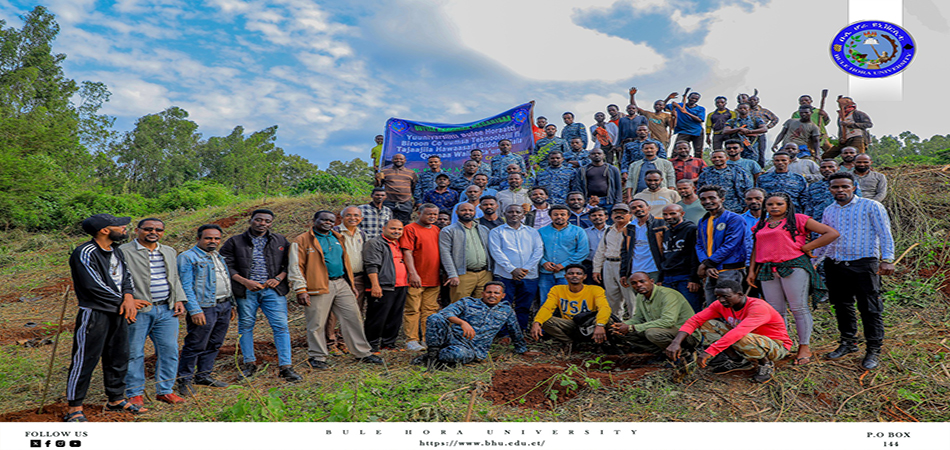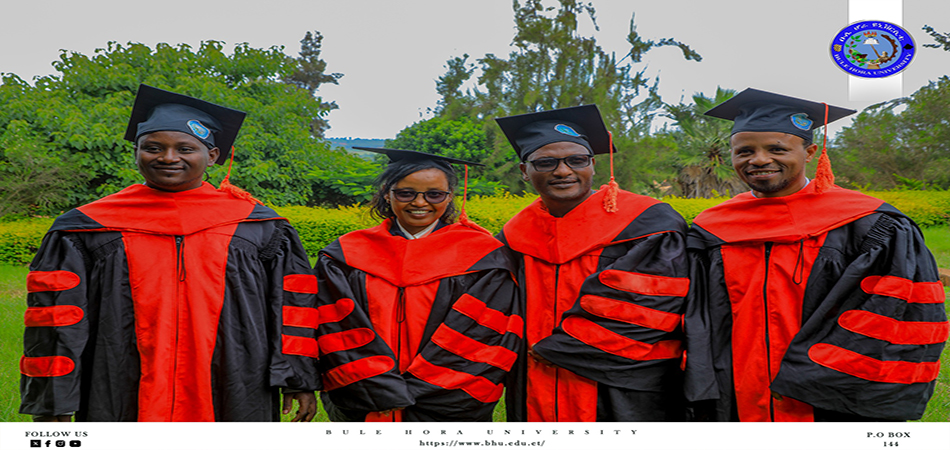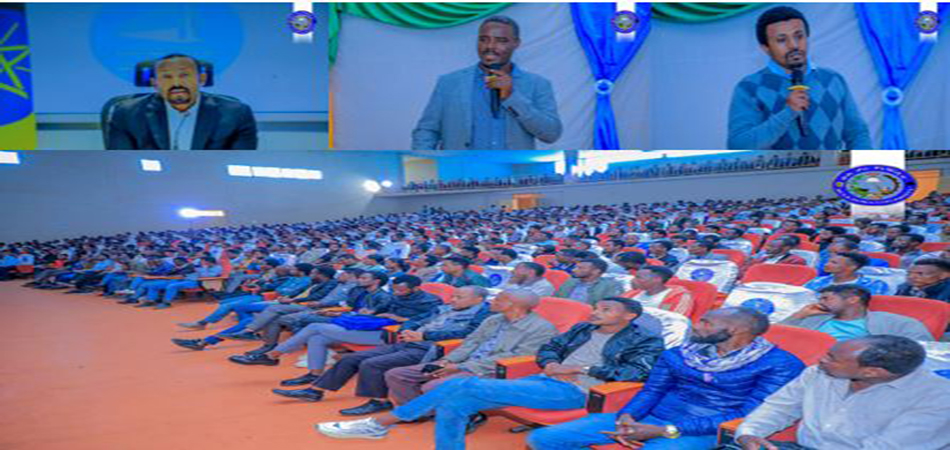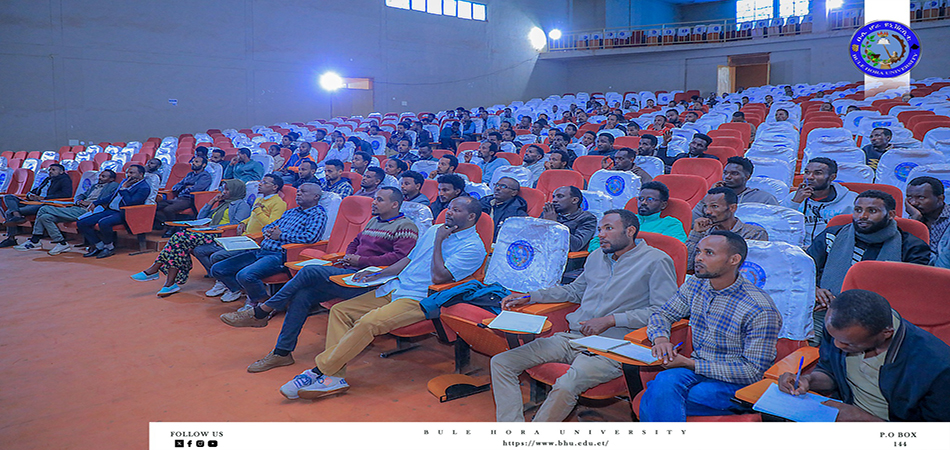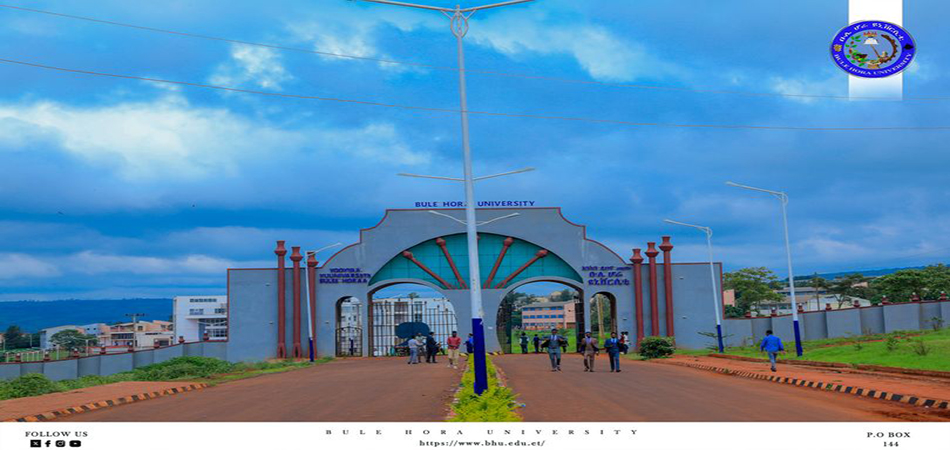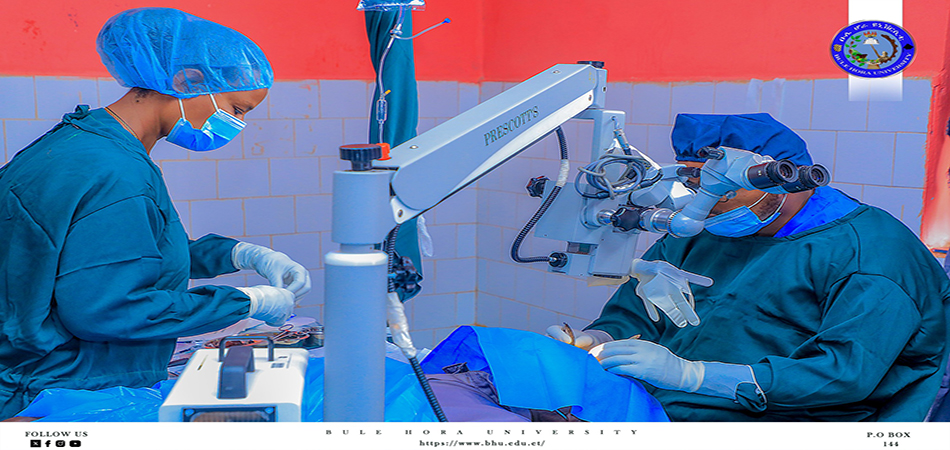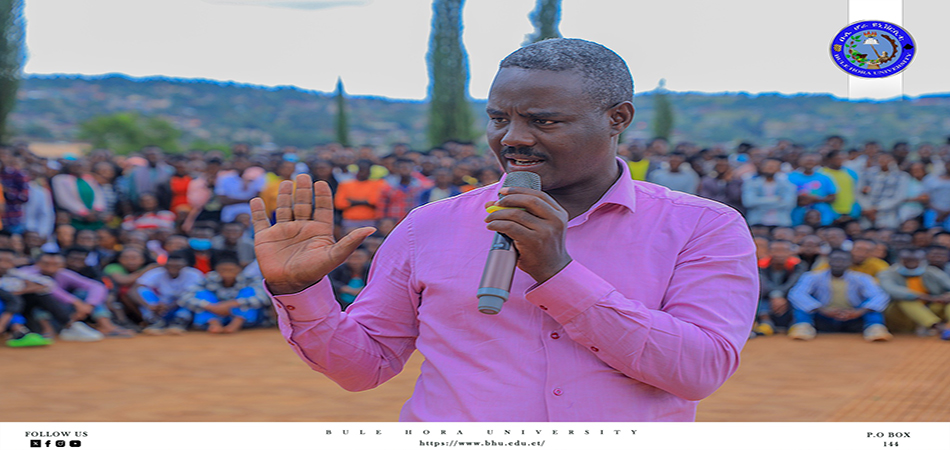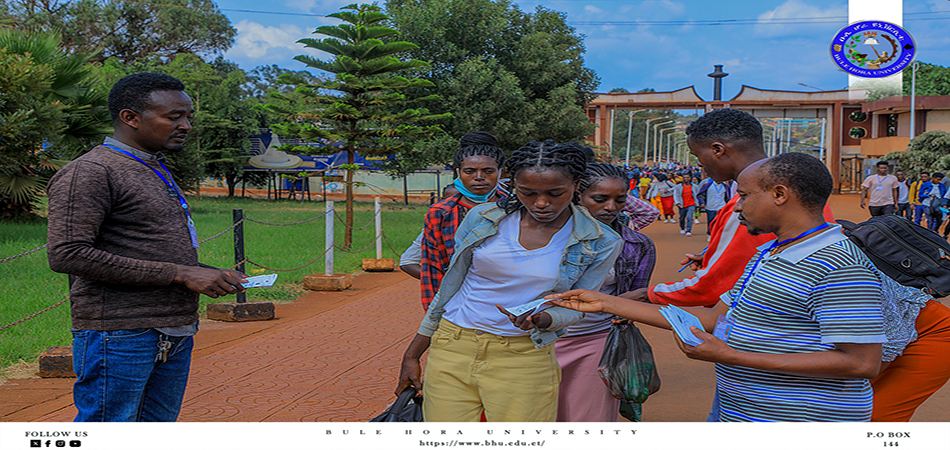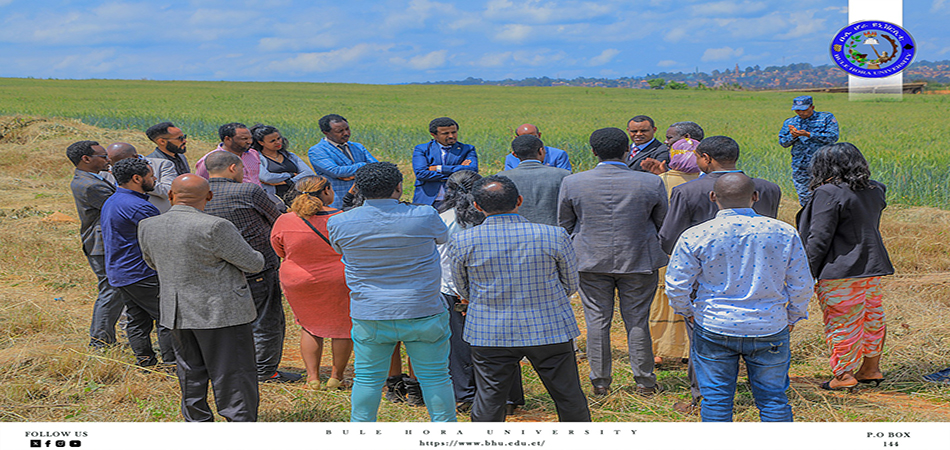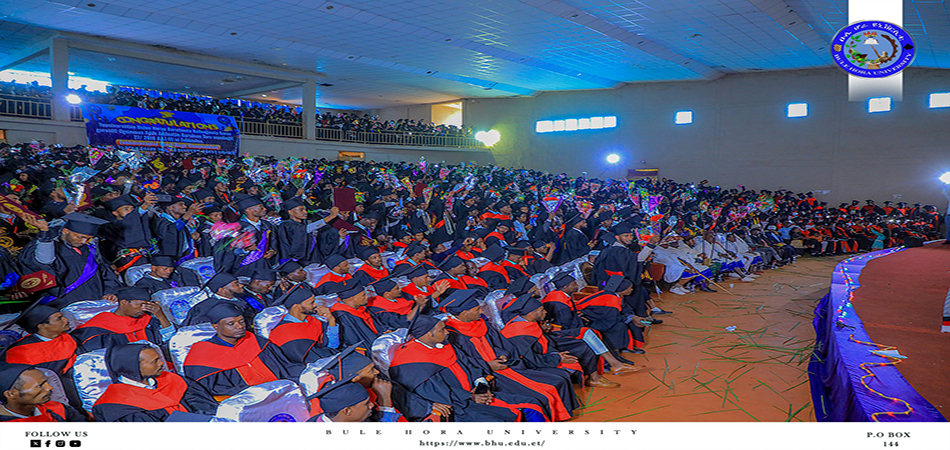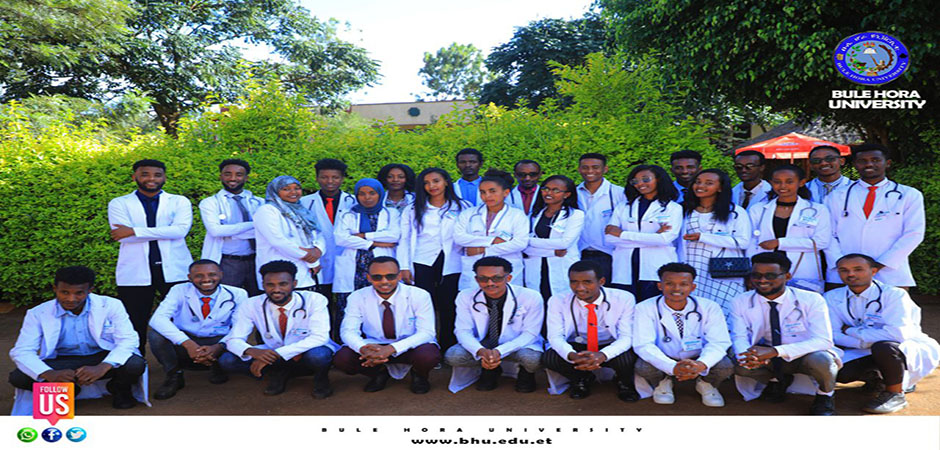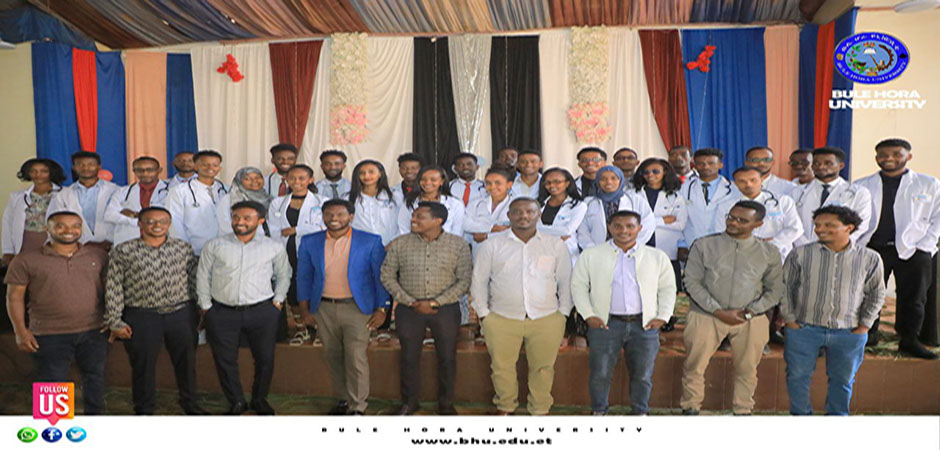Research
Posted by admin on Tuesday, 2 November 2021
Background
Since its establishment in 2004, Bule Hora University (BHU) has undertaken numerous community-oriented, problem-solving research projects. These researches focus on various areas of southeast Ethiopia, particularly in the pastoral and agro-pastoral regions of Guji and Borana zones. BHU conducts this research to address these communities' specific needs, and it collaborates with local stakeholders to ensure effective solutions. The research undertakings have ranged from small-scale disciplinary to large-scale multidisciplinary research that includes national and international levels of collaboration. BHU has conducted more than 400 problem-solving studies with financial support from the government and various partner organizations in these areas.
Regarding collaboration and linkage, BHU collaborates with many national and international universities and organizations. It focuses on various issues, such as conflict transformation and peacebuilding. For instance, BHU works with UN-WFP, UNHCR, and World Vision. Additionally, it addresses identity, ethnicity, and demarcation issues in Ethiopia in partnership with the Ministry of Peace. Nationally, BHU partners closely with Jimma University, Hawassa University, Addis Ababa University, and Dilla University. These partnerships involve teaching, research, and community service. In general, the university has experience working with governmental and non-governmental organizations and funding agencies on different projects.
BHU has strong connections with domestic and foreign universities, as well as governmental and non-governmental organizations. More than 800 academic staff from various disciplines are involved in research activities. These academics publish their research results in both international and local peer-reviewed journals. The number of academics participating in research and publishing has increased over the years.
In addition to academic staff, BHU supports postgraduate students with full financial assistance for their studies. The university uses different methods to disseminate research outputs. These methods include research conferences at both the university and college levels, workshops, publications in peer-reviewed journals, symposiums, and stakeholder meetings held at the end of each academic year. For example, BHU's international and national research conferences provide excellent opportunities to share and disseminate indigenous knowledge. This includes knowledge about the Oromo Gadaa institution, which UNESCO inscribed in 2016 as one of the intangible cultural heritages.
Recently, the research activities at BHU have focused on thematic research. This research crosses the boundaries of individual disciplines and targets specific goals aimed at solving persistent problems in the community around the BHU catchment area. Thematic areas are identified based on national, regional, and local developmental needs. These areas consider the available resources and the chronic, deep-rooted societal challenges within the catchment zones.
We believe that complex societal challenges cannot be solved by independent studies. These challenges require the combined efforts of all sectors and the support of stakeholders. Since we have identified priority thematic research areas, all research proposals submitted by academic staff for government funding must align with these areas. Thematic research is expected to produce transferable results for end-users in various forms, such as technological innovations, policy papers, manuals, guidelines, prototypes, and publications.
Vision, Missions, and Goals of the RPED Directorate
Mission:
-
The Directorate of RPED aspires to uplift the national development needs through demand-driven research based on policy directions.
Vision:
-
Aspiring to conduct problem-solving research to become a competent university both at the national and international levels.
Aim:
-
To carry out high-standard research and disseminate research outputs consistently that will contribute to the advancement of knowledge and understanding and promote the national goals of innovation, economic and social development, and environmental sustainability.
In addition, the directorate office is aimed:
- to advance knowledge through creative research, innovation, and creativity across a wide range of academic disciplines
- to extend knowledge through innovative educational programs in which students and emerging scholars are mentored to realize their highest potential and assume roles of
leadership, responsibility, and service to society - to apply knowledge through local, national, and global engagement that will improve the quality of life and enhance the economy of the country
Core Values and Beliefs of RPED Directorate
- Accountability and transparency: acting within the context of national laws and policy
Frameworks, we create an open and transparent participatory decision-making process. - Positive-mindedness: acknowledging people for their contributions to research efforts.
- Commitment: always be committed to performing assigned duties to the best of our ability.
- Collaboration and partnership: striving to build team spirit and harmony among our functional units and partners to discharge our responsibility. Engaging in and fostering effective partnerships will be our primary mode of operation, and the art of collaboration will be our core competency.
- Creativity: promoting innovative approaches to the adoption of technology and dissemination of research outputs.
- Supportive culture: developing a culture of being reflective in our research conduct through learning from others' past experiences and encouraging new approaches.
- Efficiency: exerting efforts to achieve our set targets through effective utilization of
human, financial, and material resources. - Equity and gender sensitivity: believing in diversity in all its forms as a valuable asset, we advocate fair access to resources and services for all groups irrespective of sex, religion, ethnicity, physical status, etc.
- Excellence: valuing knowledge, creativity, and innovation in all their forms.
- Honesty and integrity: appreciate operating and discharging duties and responsibilities in research and publication matters genuinely.
- Norms: believing that our activity would be conducted in line with recognized and
acceptable university and social norms. - Quality: pledging to attain the highest standard in all its undertakings.
- Relevance: the research output should be pertinent to the needs of the community.
- Responsibility: expecting all staff to contribute their share for the betterment of the community and their professional standards.

